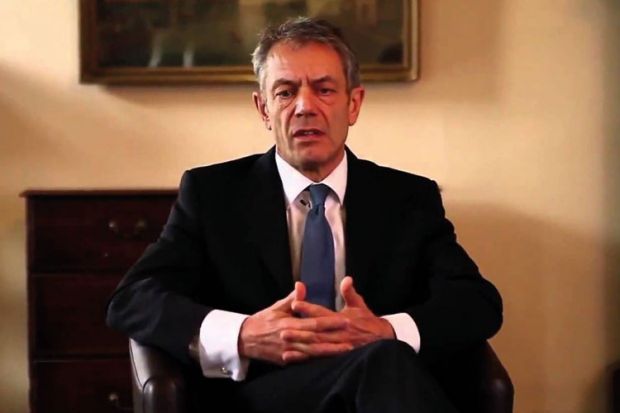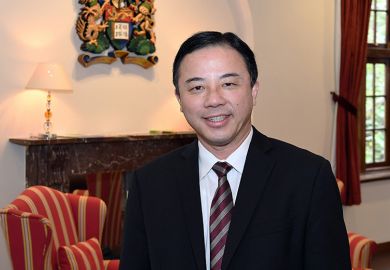Two London university leaders have chosen not to accept large pay rises as national unrest over a 1 per cent pay offer for rank-and-file staff continues.
Simon Gaskell, principal of Queen Mary University of London, is to donate a £50,000 pay rise to a scholarship fund at his institution, while City University London vice-chancellor Paul Curran will forgo a £42,000 performance-related bonus.
The moves mean that their salaries were frozen at £203,000 and £280,000, respectively, for 2012-13, with neither leader accepting a pay hike in the past three years.
Scrutiny of vice-chancellors’ pay is likely to be even more intense this year given continuing industrial action over pay and last year’s trebling of the tuition fee cap to £9,000. The highest earner for 2011-12 was Andrew Hamilton, vice-chancellor of the University of Oxford, whose pay and pension deal totalled £422,000, with average executive salaries rising by 2.7 per cent.
With last year’s executive pay likely to reflect the record numbers of students seen in 2011-12 and higher operating surpluses, several vice-chancellors are likely to benefit from the sector’s success.
But Professor Gaskell said he felt it “inappropriate” to accept the pay rise recommended by his university’s remuneration panel in recognition of Queen Mary’s success that year, which included its admittance to the Russell Group.
“I am already well paid to do a difficult job, but you get to a point where what is more important than your salary is whether you feel comfortable or not accepting it,” he said.
The decision was a “completely personal choice” that was “right for me and the institution”, and it was not intended to make any judgement about vice-chancellors who chose to accept pay hikes, he added.
Professor Gaskell, who has not accepted a pay rise since joining Queen Mary in 2009, said he was also leaving the Universities Superannuation Scheme, barring life assurance payments, after changes to tax relief thresholds for higher earners.
Unlike many university leaders leaving the USS, he will not take the employers’ pension contribution as a cash addition to his salary, he said.
The pay rise he declined will fund four scholarships of £6,000 for postgraduates and one, worth £25,000, for a student from a developing country. He will repeat the £50,000 gift “for the foreseeable future”, he said.
A City spokeswoman said that Professor Curran, who is chair of the Universities and Colleges Employers Association, which negotiates national pay deals with trade unions, had decided to forgo a salary increase for a third year. The £42,000 performance-related bonus – the first since Professor Curran’s pay was reconfigured last year – was owing to his “achieving milestones in the university’s strategic plan”.
“The vice-chancellor was pleased to receive this acknowledgement in the accounts” but has chosen not to take the payment, she said.
Register to continue
Why register?
- Registration is free and only takes a moment
- Once registered, you can read 3 articles a month
- Sign up for our newsletter
Subscribe
Or subscribe for unlimited access to:
- Unlimited access to news, views, insights & reviews
- Digital editions
- Digital access to THE’s university and college rankings analysis
Already registered or a current subscriber? Login





